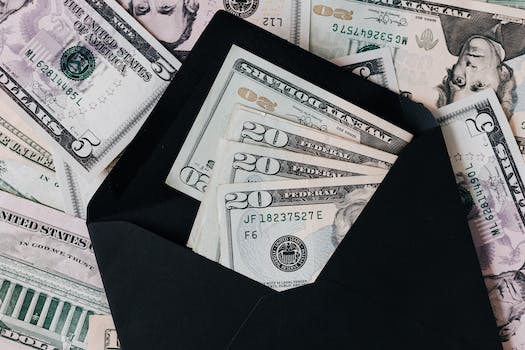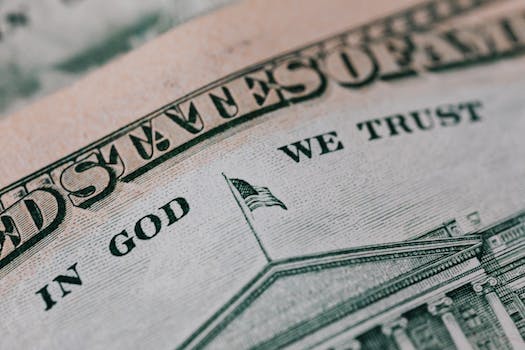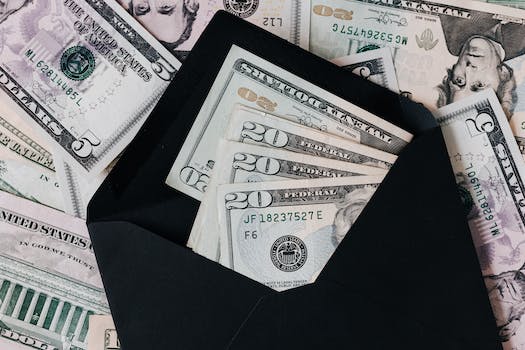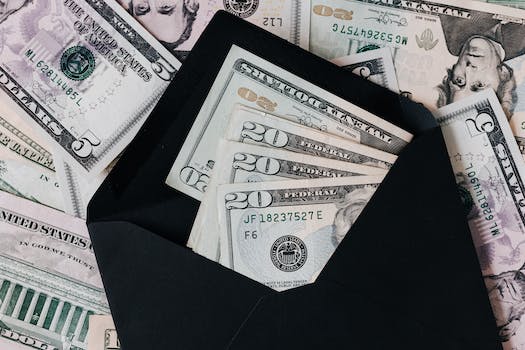How To Save Money And Budget Better
10 Simple Ways to Cut Your Monthly Expenses
Are you tired of living paycheck to paycheck? Do you want to save more money and budget better? If so, you’re not alone. Many people struggle with managing their finances, but the good news is that there are simple ways to cut your monthly expenses and save money.
1. Create a budget
The first step to saving money is to create a budget. This will help you track your income and expenses and identify areas where you can cut back. Start by listing all of your monthly expenses, including rent/mortgage, utilities, groceries, transportation, and entertainment. Then, compare your total expenses to your income and see where you can make adjustments.
2. Cut back on dining out
Eating out can be expensive, especially if you do it frequently. Try cooking at home more often and packing your lunch for work. This can save you hundreds of dollars each month.
3. Cancel subscriptions
Do you have subscriptions to magazines, streaming services, or other monthly services that you don’t use? Cancel them and put that money towards your savings.
4. Use coupons and discounts
Before making a purchase, search for coupons and discounts online. You can also sign up for loyalty programs and email newsletters to receive exclusive deals.
5. Shop around for insurance
Insurance can be a significant expense, but you may be able to save money by shopping around for better rates. Compare prices from different providers and consider raising your deductibles to lower your premiums.
6. Reduce energy usage
Lowering your energy usage can save you money on your monthly utility bills. Turn off lights and electronics when you’re not using them, use energy-efficient light bulbs, and adjust your thermostat to save on heating and cooling costs.
7. Buy generic brands
Generic brands can be just as good as name-brand products, but they’re often much cheaper. Try buying generic groceries, toiletries, and household items to save money.
8. Use public transportation
If you live in an area with public transportation, consider using it instead of driving. This can save you money on gas, parking, and car maintenance.
9. Cut back on alcohol and tobacco
Alcohol and tobacco can be expensive habits. If you’re trying to save money, consider cutting back or quitting altogether.
10. Sell unused items
Do you have items in your home that you no longer use or need? Sell them online or at a garage sale to make some extra cash.
By implementing these simple tips, you can cut your monthly expenses and save money. Remember, every little bit counts, so even small changes can make a big difference over time. With a little effort and discipline, you can achieve your financial goals and live a more comfortable life.
Creating a Realistic Budget: Tips and Tricks
Budgeting is an essential part of managing your finances. It helps you keep track of your expenses and ensures that you have enough money to cover your bills and save for the future. However, creating a budget can be challenging, especially if you’re not sure where to start. In this article, we’ll provide you with some tips and tricks on how to create a realistic budget that works for you.
1. Determine Your Income
The first step in creating a budget is to determine your income. This includes your salary, any bonuses or commissions, and any other sources of income. If you have a variable income, such as freelance work or a commission-based job, it’s essential to estimate your income based on your average earnings.
2. List Your Expenses
Next, you need to list all your expenses. This includes your fixed expenses, such as rent or mortgage payments, utilities, and car payments. It also includes your variable expenses, such as groceries, entertainment, and clothing. Be sure to include any irregular expenses, such as car repairs or medical bills.
3. Categorize Your Expenses
Once you’ve listed all your expenses, it’s time to categorize them. This will help you see where your money is going and identify areas where you can cut back. Some common categories include housing, transportation, food, entertainment, and savings.
4. Set Realistic Goals
Setting realistic goals is an essential part of budgeting. It’s important to have a clear idea of what you want to achieve and how much money you need to save to reach your goals. For example, if you want to save for a down payment on a house, you need to determine how much you need to save each month to reach your goal.
5. Track Your Spending
Tracking your spending is crucial to sticking to your budget. There are many ways to track your spending, from using a spreadsheet to using a budgeting app. The key is to find a method that works for you and stick to it. Be sure to review your spending regularly to see where you can make adjustments.
6. Cut Back on Expenses
Cutting back on expenses is one of the most effective ways to save money. Look for areas where you can reduce your spending, such as eating out less or canceling subscriptions you don’t use. Be sure to prioritize your expenses and focus on cutting back on non-essential items first.
7. Build an Emergency Fund
Building an emergency fund is an essential part of budgeting. It’s important to have a cushion of savings to cover unexpected expenses, such as car repairs or medical bills. Aim to save at least three to six months’ worth of living expenses in your emergency fund.
8. Review and Adjust Your Budget
Finally, it’s important to review and adjust your budget regularly. Your income and expenses may change over time, so it’s essential to make adjustments as needed. Be sure to review your budget at least once a month and make any necessary changes.
In conclusion, creating a realistic budget is essential to managing your finances effectively. By following these tips and tricks, you can create a budget that works for you and helps you achieve your financial goals. Remember to track your spending, cut back on expenses, and build an emergency fund. With a little effort and discipline, you can take control of your finances and achieve financial freedom.
The Importance of Meal Planning for Saving Money
Are you tired of constantly feeling like you’re living paycheck to paycheck? Do you want to start saving money but don’t know where to begin? One of the easiest and most effective ways to save money is by meal planning.
Meal planning involves taking the time to plan out your meals for the week ahead. This means deciding what you’ll eat for breakfast, lunch, and dinner each day, and making a grocery list of the ingredients you’ll need. By doing this, you’ll be able to avoid the temptation of eating out or ordering takeout, which can quickly add up and drain your bank account.
Not only does meal planning save you money, but it also helps you eat healthier. When you plan out your meals, you have more control over what you’re putting into your body. You can choose to incorporate more fruits and vegetables, lean proteins, and whole grains into your diet, which will not only benefit your health but also your wallet in the long run.
To get started with meal planning, set aside some time each week to plan out your meals. Look for recipes online or in cookbooks that use ingredients you already have on hand or that are on sale at your local grocery store. Make a list of the ingredients you’ll need and stick to it when you go shopping. This will help you avoid impulse buys and save money in the process.
Another tip for saving money on groceries is to buy in bulk. Many grocery stores offer discounts on items when you buy them in larger quantities. This is especially true for non-perishable items like rice, pasta, and canned goods. By buying in bulk, you’ll save money in the long run and always have these staple items on hand for future meals.
If you’re someone who struggles with sticking to a budget, meal planning can also help with that. By knowing exactly what you’ll be eating each day, you can plan your grocery trips accordingly and avoid overspending. You’ll also be less likely to make impulse buys or grab items that aren’t on your list.
Meal planning doesn’t have to be complicated or time-consuming. In fact, it can be a fun and creative process. Try experimenting with new recipes or incorporating different cuisines into your meal plan. You can even get your family or roommates involved by having them suggest meals or help with the cooking.
In conclusion, meal planning is a simple yet effective way to save money and budget better. By taking the time to plan out your meals for the week ahead, you’ll be able to avoid the temptation of eating out or ordering takeout, eat healthier, and stick to a budget. So why not give it a try? Your wallet (and your waistline) will thank you.
How to Build an Emergency Fund and Why You Need One
Saving money and budgeting better are two essential skills that everyone should learn. Whether you’re trying to pay off debt, save for a big purchase, or just want to have more financial security, having a solid emergency fund is a crucial part of any financial plan. In this article, we’ll discuss how to build an emergency fund and why you need one.
What is an emergency fund?
An emergency fund is a stash of money that you set aside specifically for unexpected expenses. These could be anything from a medical emergency to a car repair to a job loss. The idea is to have enough money saved up so that you can cover these expenses without having to rely on credit cards or loans.
How much should you save?
The general rule of thumb is to save three to six months’ worth of living expenses. This means that if your monthly expenses are $3,000, you should aim to save between $9,000 and $18,000. Of course, this number will vary depending on your individual circumstances. If you have a stable job and a good support system, you may be able to get away with saving less. On the other hand, if you’re self-employed or have a high-risk job, you may want to save more.
How to build an emergency fund
Building an emergency fund takes time and effort, but it’s worth it in the long run. Here are some tips to help you get started:
1. Set a goal: Decide how much you want to save and by when. Having a specific goal in mind will help you stay motivated and focused.
2. Cut back on expenses: Look for ways to reduce your monthly expenses. This could mean canceling subscriptions, eating out less, or finding a cheaper place to live.
3. Increase your income: Consider taking on a side hustle or asking for a raise at work. Any extra money you earn can go towards your emergency fund.
4. Automate your savings: Set up automatic transfers from your checking account to your savings account. This way, you won’t have to think about saving – it will happen automatically.
5. Use windfalls wisely: If you receive a bonus at work or a tax refund, resist the urge to spend it all. Instead, put a portion of it towards your emergency fund.
Why you need an emergency fund
Having an emergency fund is important for several reasons. First and foremost, it provides a safety net in case of unexpected expenses. This can help you avoid going into debt or having to rely on friends and family for financial support. Additionally, having an emergency fund can give you peace of mind. Knowing that you have money set aside for a rainy day can help you feel more secure and less stressed about your finances.
In conclusion, building an emergency fund is an essential part of any financial plan. By setting a goal, cutting back on expenses, increasing your income, automating your savings, and using windfalls wisely, you can build up a solid emergency fund over time. Remember, the goal is to have enough money saved up so that you can cover unexpected expenses without having to rely on credit cards or loans. Having an emergency fund can provide financial security and peace of mind, so start building yours today!
Maximizing Your Savings: Strategies for Paying Off Debt Faster
Are you tired of living paycheck to paycheck? Do you want to save more money and get out of debt faster? If so, you’re not alone. Many people struggle with managing their finances and finding ways to save money. But with a few simple strategies, you can start maximizing your savings and paying off debt faster.
The first step to saving money is to create a budget. This means tracking your income and expenses and figuring out where your money is going each month. Once you have a clear picture of your finances, you can start making changes to your spending habits. Look for areas where you can cut back, such as eating out less or canceling subscriptions you don’t use.
Another way to save money is to negotiate your bills. Call your service providers and ask if they can lower your rates or offer you a better deal. You might be surprised at how much you can save just by asking.
If you have debt, it’s important to prioritize paying it off. Start by making a list of all your debts, including the balance and interest rate. Then, focus on paying off the debt with the highest interest rate first. This will save you money in the long run by reducing the amount of interest you have to pay.
One strategy for paying off debt faster is the snowball method. This involves paying off your smallest debt first, then using the money you were paying towards that debt to pay off the next smallest debt, and so on. This can help you build momentum and stay motivated as you see your debts disappear one by one.
Another way to pay off debt faster is to consolidate your debts into a single loan with a lower interest rate. This can make it easier to manage your payments and save you money on interest. Just be sure to read the terms and conditions carefully and make sure you can afford the monthly payments.
If you’re struggling to make ends meet, consider finding ways to increase your income. This might mean taking on a side hustle or asking for a raise at work. You could also look for ways to save money on your regular expenses, such as by shopping around for cheaper insurance or switching to a more affordable cell phone plan.
Finally, don’t forget to celebrate your successes along the way. Saving money and paying off debt can be a long and challenging journey, but it’s important to acknowledge your progress and reward yourself for your hard work. Whether it’s treating yourself to a small indulgence or taking a vacation once you’ve reached your financial goals, make sure to celebrate your achievements and keep yourself motivated for the road ahead.
In conclusion, saving money and paying off debt requires discipline and commitment, but it’s worth it in the end. By creating a budget, negotiating your bills, prioritizing debt repayment, and finding ways to increase your income, you can start maximizing your savings and achieving your financial goals. Remember to stay motivated, celebrate your successes, and keep working towards a brighter financial future.





